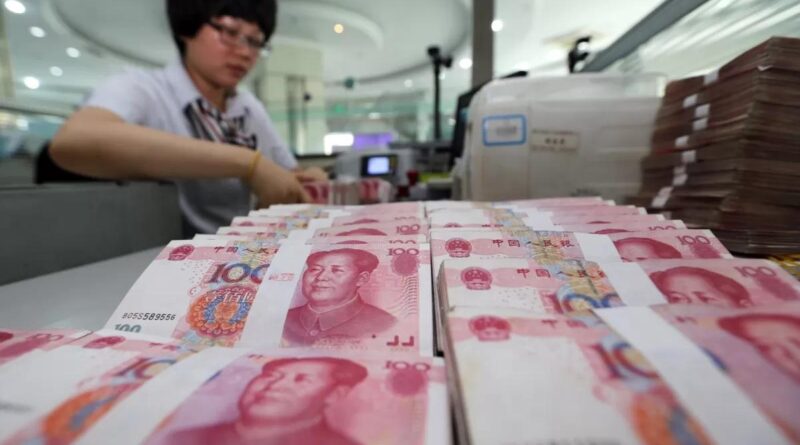China helped Argentina comply with the IMF: the price of aid?
The Asian giant holds the key for the national government to avoid a “failure” with the International Monetary Fund.
China helped Argentina avoid a second default with the International Monetary Fund (IMF) in 30 days. The national government drew nearly $3 billion from a currency swap line with Beijing to repay the multilateral lender.
Access to the yuan for payment was not only a lifeline for Argentina’s economy, which is facing a severe dollar shortage, but also allowed the IMF to keep a $44 billion program alive, analysts say.
However, there are growing doubts about the terms and conditions of the agreement between the central banks of the two countries, according to reporters. Georgina do Rosario y Karen Strohecker in a note by the Reuters agency.
“China is not trying to replace the IMF,” he said. Matthew Mingay, Rhodium Group analyst. “When China has allowed the use of these swap lines, in many cases it is to unlock an IMF bailout or to ensure that an IMF program stays on track,” he added.
Although China is a member of the IMF, it is also the largest bilateral lender to developing economies, and Argentina is one of the main destinations for Chinese investment in Latin America, including financing for railway, energy and mining projects.
In turn, China is a major buyer of Argentina’s soybean, corn and beef exports.
Under the terms of an IMF loan agreed in 2022, funding is released in installments based on regular reviews that confirm the government has taken the necessary steps to support the economy, but disagreements between the parties have delayed recent talks.
Argentina reached a preliminary agreement with the IMF on Friday, but will only have access to the $7.5 billion tied up when the Fund’s Executive Board gives final approval in the second half of August.
Meanwhile, the country must make payments from a failed 2018 program.
Short of time or money, Argentina used the equivalent of US$1.1 billion in yuan in June and $1.7 billion in July to cover part of two repayments of more than $5 billion to the IMF.
“It just works as a short-term bridging loan,” he said. Mark Sobel, who was a senior official of the United States (US) Treasury Department. “China has every incentive to tightly manage Argentina’s transfers below buyout lines, as the risks are too great,” he added.
A country automatically defaults to the IMF if it defaults on the Fund, which also means it loses access to financing from other multilateral lenders, such as the World Bank (WB). Such an outcome, and the resulting potential market turmoil, would drastically increase pressure on Argentina.
unknown value
Neither China nor Argentina have released details of the bridge loan, and little is known about the $19 billion facility signed more than a decade ago.
“Chinese exchanges are very opaque,” said Sobel, who was the US representative to the IMF from 2015 to 2018.
“The terms are unknown, how easy is it to withdraw? What are the terms? What are the interest rates? What is the term?” are just some of the unanswered questions, he added.
China’s central bank and Argentina’s central bank and finance ministry did not respond to requests for comment.
The swap line signed by the People’s Bank of China (PBOC) in 2009 with Buenos Aires was the first to be agreed with a Latin American country. Since then, it has been renewed and expanded under both centre-left and pro-market governments.
Following a trip to China in May by the Minister of Economy, Sergio Massathe countries agreed to double the free-access portion of the swap deal from 35 billion yuan ($4.94 billion) to 70 billion yuan, allowing Argentina to pay for imports and now IMF debt from the 2018 loan.
“The line works like any other short-term BoP (balance of payments) loan, although access to resources is limited and costly,” he said. Martin Castilianhead of LatAm research at the Institute of International Finance (IIF).
The geopolitical background is thin
The United States is the largest contributor to the IMF, but Washington is increasingly at loggerheads with China over how to resolve debt restructurings with countries such as Zambia and Sri Lanka. Relations are also at a critical juncture over burning issues such as Taiwan and Russia’s invasion of Ukraine.
“From a geopolitical point of view, this brings Argentina closer to the Chinese sphere,” he said. Alejandro Wernerfounding director of the Georgetown Institute of America.
“It reflects how much more nimble China’s external financial diplomacy can be and is an added virtue that countries see in maintaining a constructive relationship with China,” added Werner, who headed the IMF’s Western Hemisphere Department when the loan. from Argentina in 2018.
“This is not free money, and even when the PBOC has a large facility agreement, these swap lines often come with drawdown conditions,” Mingey said.
#China #helped #Argentina #comply #IMF #price #aid
